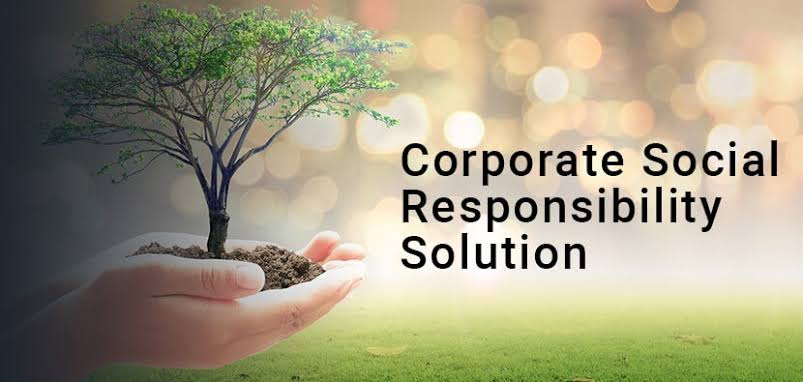The government as well as the companies need to plug the loopholes so that there is no scope for unscrupulous elements to commit frauds.
by Sajjad Bazaz
Philanthropy was not deliberated and documented till 2014. It got a new facelift when the Companies Act 2013 brought the idea of corporate social responsibility (CSR) to the forefront through its disclosure-or-explain mandate with community at the centre point of all activities. This way, India became the first country to bring CSR activities under the legal framework and made it mandatory for the companies to spend a portion of their profits for the benefit of societies.
Remarkably, the society is of key importance to the companies as their growth and earnings contain major shares from the society. On this premise, it becomes obligatory on part of the companies to give back a portion of their profits to this very society.
Legally speaking, the government notified the rules for CSR funding under section 135 of the new Companies Act, 2013 and Companies (Corporate Social Responsibility Policy) Rules. The CSR provisions under companies law came into effect from April, 2014.
According to Section 135 of Companies (CSR) Rules, 2014 and Schedule VII of Companies Act 2013, every company with a net worth of Rs 500 crore or more or turnover of Rs 1,000 crore or more or net profit of Rs 5 crore or more during the immediate preceding financial year, must have a CSR committee and spend at least 2 percent of average net profits earned during three immediate preceding financial years to CSR activities.
Official data reveals that around 8,300 businesses spent Rs.20,360 crore in over 25,000 CSR projects in the financial years 2021 (FY21). Major contributors have been Reliance Industries Ltd, Tata Consultancy Services Ltd, Tata Sons Pvt. Ltd, HDFC Bank Ltd, Oil and gas Corp. Ltd and Indian Oil Corp. Ltd. Overall, the Indian Inc has spent over Rs 1 trillion on CSR projects since the mandatory CSR law came into effect. Over 50 per cent of the spend came in the last three years with Covid-19 pandemic emerging as a major focus area of the corporates in the last two years. Besides, the Ministry of Corporate Affairs (MCA) has been working overtime to expand the horizon of CSR activities with pandemic continuing to hit global geographies with new variants of the virus.
In view of the extreme medical emergency arising out of the Covid-19 waves, the ministry allowed the companies to use CSR funds for “creating health infrastructure for Covid-19 care, establishment of medical oxygen and storage plants, manufacturing and supply of oxygen concentrators, ventilators, cylinders and other medical equipment for countering Covid-19.” Even the amount spent by companies on setting up makeshift hospitals and temporary Covid care facilities was included under the ambit of CSR activities.
The corporate affairs ministry even granted relaxation in CSR rules in the last couple of years, which has encouraged the companies falling under CSR net to spend a good portion of their CSR budget on raising healthcare infrastructure. Notably, changes in CSR Rules notified from time to time also introduced significant monitoring and evaluation of CSR activities, and utilisation of CSR expenditure.
From today’s business point of view, those companies spending money on public welfare through CSR initiatives have a direct influence on their customer base. A ‘socially responsible’ company is a point of attraction for customers and the company’s effective CSR initiatives garner customers’ loyalty for the company. A loyal customer base is a guaranteed bright future for a company. So it makes sense for companies to tailor their CSR initiatives in these tough times, when Covid-19 is yet to end and Russia-Ukraine driven geopolitical tension is hovering around us, in such a way that extends immediate and long term relief to the general public.
In other words, a useful CSR initiative in the prevailing situation would be fuelling power to a company to stand out in today’s saturated market. It’s the CSR arm which a company can use to ensure long-term loyalty and potentially even brand advocacy.
However, while building and improving their brands, companies have to act sincerely without misleading the public, especially its customers. The acts of the company should speak for it being truthful and devoted to a cause in real sense.
Over a period of time, the CSR activities of various companies surfaced as ‘doubtful’. Even as companies have been funding infrastructure projects, especially in the health sector, acts of misuse of the CSR-funded infrastructure have been found in various surveys. Here compliance is not an issue. The problem is that some non-governmental organizations implementing the CSR projects of the companies don’t show honesty on the ground.
An EY Forensic & Integrity Services’ report is worth quoting. The report said: “Companies could see frauds in their Corporate Social Responsibility (CSR) programs as they may not have the bandwidth to conduct due diligence or monitor these amidst Covid-19 pandemic.”
Experts have pointed out loopholes in the CSR law which the unscrupulous elements exploit to siphon the funds and commit frauds in CSR projects. “Often, these for-profit companies do not have bandwidth to have a dedicated team in place to implement and monitor their CSR projects as they have for their business operations. This gap has given a chance for many middlemen to enter the field in the garb of CSR consultants and encourage the CSR funds to be spent on fake CSR projects,” reads an expert opinion on why frauds happen in CSR funds.
This expert opinion on CSR frauds has been endorsed by the EY Forensic and Integrity Services in its report titled Corporate Social Responsibility in India: re-engineering compliance and fraud mitigation strategies. The report said: “Lack of due diligence on implementation partners, weak governance and limited management involvement are contributing to ethical lapses and fraud in corporate social responsibility (CSR) programs. According to the report, there is a high dependence on third parties to execute CSR programs, 65 percent of the companies that participated in the research sample of the report, did not have a clear due diligence policy and only 45 per cent admitted to checking the past record of implementation partners.
How does the dependence on third parties to execute CSR programs lead to financial frauds? Let me explain. A corporate engages a non-governmental organization (NGO) to implement its health project under CSR initiative. For instance, the company procures health diagnostic equipment under its CSR initiative to be placed in a particular area for the benefit of the poor and downtrodden. Precisely, the facility is put in place exclusively for the people having no means to conduct such health check-ups in the private sector. The NGO engaged to implement the project ties up with an organization to be actually responsible for carrying out the operations in line with the given objective. It’s here that the organization that projects itself as a trust or foundation to carry philanthropic activities uses the same diagnostic equipment for commercial purposes. With a corporate funded infrastructure, this organization engaged by the NGO clandestinely turns itself into a commercial health centre, thus, defeating the objective of the CSR.
In the backdrop of the above stated situation, where CSR funds are misused that too under the nose of a given legal framework, there is a need to revisit the mechanism of implementation and monitoring of CSR projects through third parties. The government as well as the companies need to plug the loopholes so that there is no such scope for unscrupulous elements to commit frauds.
It would be in the fitness of things if the local government gets itself involved in CSR activities. For instance, J&K Government can create a CSR window where corporates and companies intending to run their projects in the Union Territory can pool their portion of CSR funds for such projects. This way, the government can have an eagle’s eye over the implementation of the project in a transparent way and third parties at the operational level will become accountable to the system. Otherwise, the very objective of CSR will stand defeated at the hands of unscrupulous elements.
Sajjad Bazaz heads Internal Communication & Knowledge management Department of Jammu & Kashmir Bank Ltd. The views expressed are his own and, not the institution he works for.


